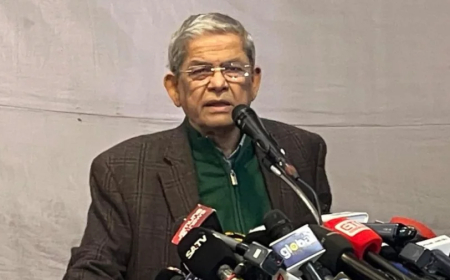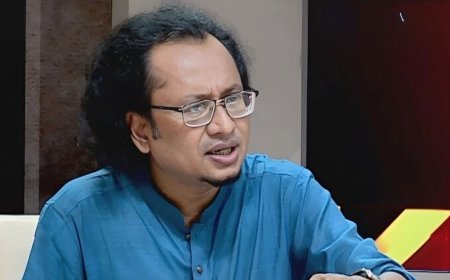The Fragile Pact Between Heaven and Earth
The real challenge is separation: Can parties driven by faith transform national strength without narrowing citizenship to lines of belief?

Throughout history, religion-based political movements have often arrived carrying banners of national renewal and unity. Promises were plentiful -- institutions reformed, divisions healed, and societies propelled forward by spiritual vision.
Yet time and again, when parties conflate spiritual aspiration with the machinery of state, the possibility for authentic, holistic progress is dimmed.
The failure to erect boundaries between the metaphysical and the administrative has repeatedly led to stagnation -- curtailing innovation, inclusion, and adaptability, the lifeblood of social advance.
Campaigns of Modernization, Governance of Exclusion
Across continents and creeds, the starting point is reform -- a platform rich with promises of openness and modernization. But once they come to power, agendas begin to drift.
Consider the BJP in India. The BJP galvanized support with pledges of economic revival and anti-corruption, only to rapidly pivot toward Hindu nationalism once in office. Laws and institutions were reshaped to elevate religious majoritarian interests, and minorities found themselves increasingly marginalized.
Israel’s Likud, under Netanyahu, began with liberal economic credentials but, in partnership with religious Zionists, shifted its energies to deepening Jewish identity, expanding settlements, and gradually undermining secular institutions.
Iran’s 1979 revolution was launched with cries of justice and independence but soon gave way to entrenched religious authority -- dissent was suppressed, and the door to reform was firmly closed.
Meanwhile, Poland’s Law and Justice party positioned itself as a champion of anti-elitism and Catholic values, yet after gaining power, it centralized authority, restricted judicial independence, and enshrined Catholic doctrine within the machinery of policy.
Across these cases, a familiar trajectory emerges. Campaign platforms begin with inclusive rhetoric and visions of renewal, but the consolidation of power sees the retreat of pluralism and the advance of exclusionary agendas. The interplay of reform and tradition, modernization and majoritarian rule, remains a defining tension in contemporary politics. Plurality and innovation often surrender in service of spiritual supremacy.
The Institutional Dilemma of State and Faith
Why does this configuration so reliably stymie progress? When religious dogma steers the affairs of state, spaces for criticism, creativity, and debate become constricted. The rationale of policy shifts -- from public good to preservation of purity. Minority protections are diminished, and intellectual dynamism is replaced by orthodoxy. Instead of guiding a mosaic of citizens, governance seeks to fortify a singular tradition.
India’s model of “positive secularism” oscillates between formal acceptance of diversity and the ongoing entanglement of state with majoritarian interests. In Israel, secular institutions yield ground under religious pressure. Iran’s theocracy, fiercely protective of tradition, remains resistant to reform despite the needs of a changing citizenry. In Poland, Catholic resurgence molds law and daily life, narrowing the space for dissent.
Golden Ages and the Perils of Fusion
The historian Bernard Lewis, in: “What Went Wrong?” provides instructive perspective. The Islamic Golden Age was not made by enforcing dogma but by embracing inquiry and pluralism -- where diverse ideas and external influences were welcomed. It was an age when Arab, Persian, and Andalusian scholars mapped the stars, measured the Earth, and preserved classical learning for future civilizations.
Centers like Baghdad’s House of Wisdom stood as crossroads of science, philosophy, and art -- proof that openness fuels achievement. Algebra, astronomy, and medicine flourished not despite diversity, but because of it -- a testament to how curiosity thrives when belief co-exists with reason.
As religious authority fused with legal and state power, the spirit of experimentation waned, and with it, modernization faltered. For societies to remain vibrant, boundaries must be drawn -- continuity is not achieved by conformity, but by adaptation.
Yet, instead of changing to preserve tradition, many societies ensure that everything changes -- except the things that most need to evolve. The result is decline: the loss of influence, dynamism, and collective purpose.
Could Things be Different?
Are exclusion and stagnation inevitable when faith enters the halls of power -- or can religion-inspired politics still unlock possibility? History offers a nuanced answer. Religious values have sparked reform, galvanized resistance against injustice, and knitted communities together in times of crisis. There is untapped promise in spiritual ideals but realizing it depends on resisting the lure of absolute control and domination over civic life.
The real challenge is separation: Can parties driven by faith transform national strength without narrowing citizenship to lines of belief?
Why, despite rich campaign promises, do so many movements succumb to monopolizing power, serving only their own flock?
Is it possible for faith-inspired leadership to nurture inclusion and dynamism, rather than enclave politics?
This dilemma recalls a memorable line from Giuseppe Tomasi di Lampedusa’s novel, The Leopard: “For things to stay the same, things will have to change.”
In the struggle between tradition and renewal, rigid fusion of religion and state often ensures everything shifts except what most needs transformation. Lewis’s historical lesson is clear -- flexibility is vital for continuity, and real progress requires the courage to adjust course when old habits stagnate.
The future, then, rests with those willing to embrace a wider vision: leadership that honors spiritual roots but builds civic institutions strong enough for all.
“For things to stay the same, things will have to change” -- if the next generation of faith-inspired movements learns this lesson -- balancing devotion with the openness that enables freedom and diversity -- then yes, the story could be different.
But that remains the open question for societies navigating tradition and progress in a new century, especially ours.
What's Your Reaction?














































































